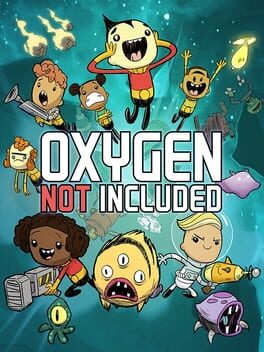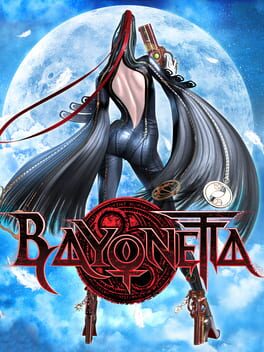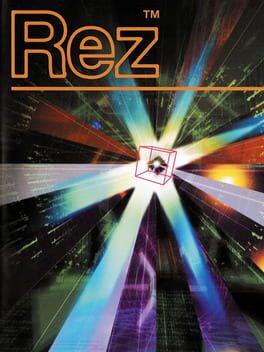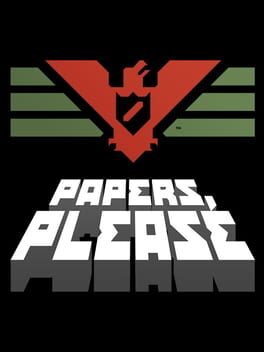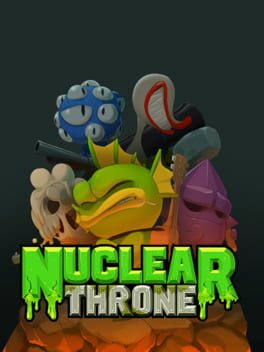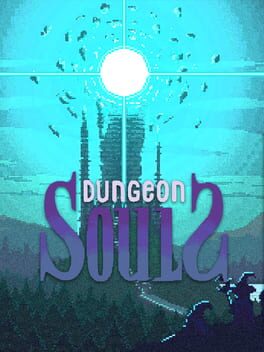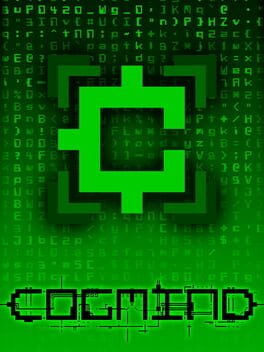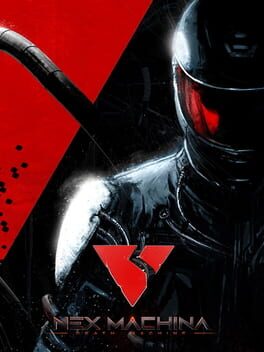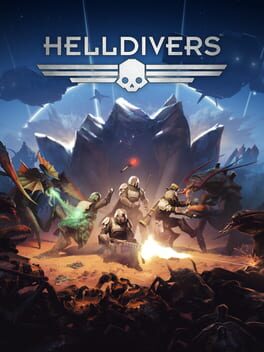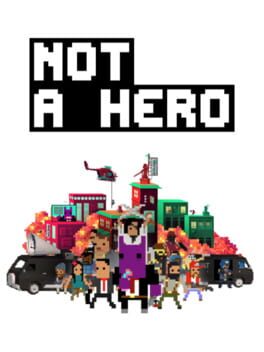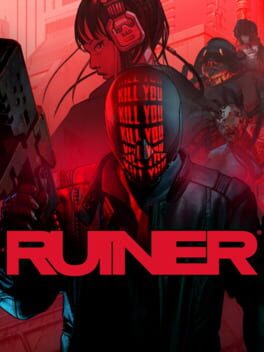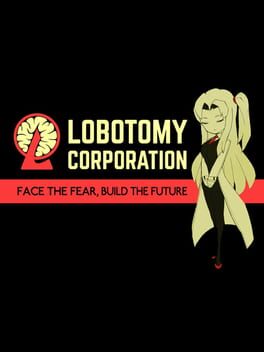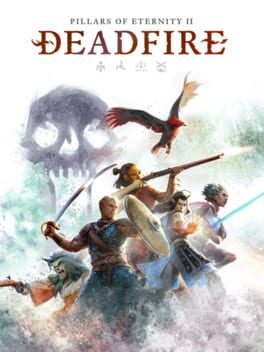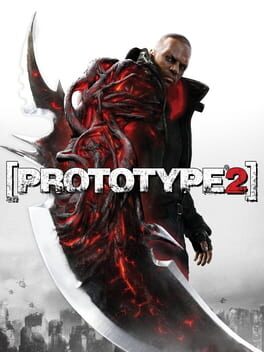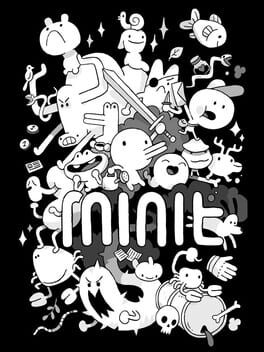Klaustrix
BACKER
2019
ONI is a base building survival management sim from Klei (Don't Starve, Rotwood). The game's premise is simple: clone humans, mine the environment while avoiding hazards, construct devices and furnishings that improve their lives, and repeat.
The real challenge of ONI is in how nuanced the simulation elements are in your closed environment. Gasses behave realistically rising and falling according to density. Heat generated by a furnace will threaten to melt its own environment and disrupt neighbouring areas unless properly vented to balance cold spots. Pressure is also applied to how you move air and liquids around.
The goal then is really to create a kind of klein flask that is properly balanced as you manage the by-products of your duplicants and their technology. The puzzle of how to build your base is also complicated by the duplicants frail human bodies. It's easy to get them sick from toxic fumes, accidentally mine into a pocket of gas, have to deal with bug infestations, or be left figuring out what to do with all the pee and vomit that can cause a death spiral. Gross out humour is not a gimmick here but a feature and part of the simulation.
The result is a polarising experience. If you don't love those physics elements then you're going to be annoyed when you inevitably HAVE to tackle them. If the premise doesn't sound like fun then definitely avoid, otherwise enjoy your engineering homework.
The real challenge of ONI is in how nuanced the simulation elements are in your closed environment. Gasses behave realistically rising and falling according to density. Heat generated by a furnace will threaten to melt its own environment and disrupt neighbouring areas unless properly vented to balance cold spots. Pressure is also applied to how you move air and liquids around.
The goal then is really to create a kind of klein flask that is properly balanced as you manage the by-products of your duplicants and their technology. The puzzle of how to build your base is also complicated by the duplicants frail human bodies. It's easy to get them sick from toxic fumes, accidentally mine into a pocket of gas, have to deal with bug infestations, or be left figuring out what to do with all the pee and vomit that can cause a death spiral. Gross out humour is not a gimmick here but a feature and part of the simulation.
The result is a polarising experience. If you don't love those physics elements then you're going to be annoyed when you inevitably HAVE to tackle them. If the premise doesn't sound like fun then definitely avoid, otherwise enjoy your engineering homework.
2009
Ya boi Hideki Kamiya is back at it again breathing new life into the spectacle fighter genre he started with the Devil May Cry series. Bayonetta follows the adventures of Cereza, a member of the Umbra Witches, as she battles an ambitious order of angels using stiletto mounted guns, kinky magic, and demons summoned using her hair.
The premise is of course bonkers but Kamiya is not known for subtlety and things only escalate from there. The game is outrageous from start to finish with musical numbers, gratuitous sexualisation, torturing foes with kink equipment, and tongue in cheek flirtations throughout. Without a doubt the game ends up being far more sexploitation than representation but we're not here to discuss feminism.
Gameplay offers a plethora of A and B combos, weakened foes can be pulled into button mashing events that torture and execute them, and dodging attacks rewards you with 'witch time', a mode that slows everything down and multiplies your combo. Your performance is scored with a letter grade at the end of each stage so you're encouraged to experiment and engage with all the mechanics. The boss fights are the biggest shows the game has to put on with all of the usual gameplay turned up to eleven none of which bored me, but there are long slogs of angels to carve through between them.
The storyline is confusingly intricate and sets the tone with anime tropes a-plenty but the pacing can be all over the place. You start with a musical number, arena fight, a comic book intro, and then dive into the main story. It makes for a bumpy introduction but after that it starts to gain some consistency.
This is a game with spectacle at its core, it's eager to entertain but combat can get samey and beyond the sexualisation the game doesn't have much substance. Making an angel orgasm to death gets a bit tedious after the first few times. Overall you're in for quite a ride but, like your sexuality, unless you're pushing yourself to experiment you might end up stuck in tedious repetition with nothing encouraging you to try anything else.
The premise is of course bonkers but Kamiya is not known for subtlety and things only escalate from there. The game is outrageous from start to finish with musical numbers, gratuitous sexualisation, torturing foes with kink equipment, and tongue in cheek flirtations throughout. Without a doubt the game ends up being far more sexploitation than representation but we're not here to discuss feminism.
Gameplay offers a plethora of A and B combos, weakened foes can be pulled into button mashing events that torture and execute them, and dodging attacks rewards you with 'witch time', a mode that slows everything down and multiplies your combo. Your performance is scored with a letter grade at the end of each stage so you're encouraged to experiment and engage with all the mechanics. The boss fights are the biggest shows the game has to put on with all of the usual gameplay turned up to eleven none of which bored me, but there are long slogs of angels to carve through between them.
The storyline is confusingly intricate and sets the tone with anime tropes a-plenty but the pacing can be all over the place. You start with a musical number, arena fight, a comic book intro, and then dive into the main story. It makes for a bumpy introduction but after that it starts to gain some consistency.
This is a game with spectacle at its core, it's eager to entertain but combat can get samey and beyond the sexualisation the game doesn't have much substance. Making an angel orgasm to death gets a bit tedious after the first few times. Overall you're in for quite a ride but, like your sexuality, unless you're pushing yourself to experiment you might end up stuck in tedious repetition with nothing encouraging you to try anything else.
2001
A surreal rail shooter that eschews complex gameplay for a killer soundtrack and stunning visuals by Tetsuya Mizuguchi (Tetris Effect, Child of Eden).
This game boasts a psychedelic light show depicting a virus in the future trying to hack its way through a mainframe to release an artificial intelligence - at least that's the vague justification behind the abstract wireframe world you float through in each stage. The visuals are inspired by the 80's cyberpunk vision of digital cyberscapes akin to Tron and the early CGI from films like The Lawnmower Man. Its crude by todays standards but for a stunning visual upgrade there's always Rez Infinite on steam.
The gameplay has you shooting waves of enemies and their projectiles but each attack is accompanied by sound effects that turn your actions into an extension of the soundtrack blurring the line between shooter and rhythm game. The surreal environments take you on a wild journey that grows in speed and intensity, the beat and tempo escalating until you reach the bosses which take the form of intense thrumming fever dreams with unforgettable visuals.
If you're familiar with Tetsuya's other works you'll recognize the trademark style over substance approach. It may not have deep gameplay but Rez is more of a sensory experience, the 'trance vibrator' is a testament to that. I rate this highly as it remains one of the earlier examples of designers challenging the conventions of gaming, pushing the boundaries between art, game, and what a gaming experience can be akin to the likes of LSD Dream Emulator.
This game boasts a psychedelic light show depicting a virus in the future trying to hack its way through a mainframe to release an artificial intelligence - at least that's the vague justification behind the abstract wireframe world you float through in each stage. The visuals are inspired by the 80's cyberpunk vision of digital cyberscapes akin to Tron and the early CGI from films like The Lawnmower Man. Its crude by todays standards but for a stunning visual upgrade there's always Rez Infinite on steam.
The gameplay has you shooting waves of enemies and their projectiles but each attack is accompanied by sound effects that turn your actions into an extension of the soundtrack blurring the line between shooter and rhythm game. The surreal environments take you on a wild journey that grows in speed and intensity, the beat and tempo escalating until you reach the bosses which take the form of intense thrumming fever dreams with unforgettable visuals.
If you're familiar with Tetsuya's other works you'll recognize the trademark style over substance approach. It may not have deep gameplay but Rez is more of a sensory experience, the 'trance vibrator' is a testament to that. I rate this highly as it remains one of the earlier examples of designers challenging the conventions of gaming, pushing the boundaries between art, game, and what a gaming experience can be akin to the likes of LSD Dream Emulator.
2013
Papers Please puts you in the role of a border guard for Arstotzka, a fictional eastern European country, and captures the high tension atmosphere of a post war time period. While essentially a paperwork simulator the gameplay is ever evolving and each level has a variety of micro-stories that are the heart of the game.
Basic gameplay has you checking paperwork for mistakes and matching the latest rules which grow increasingly complicated as you play. You earn a little money for each person you process, getting penalised for mistakes, and at the end of each level your funds go towards paying rent, feeding your family, and keeping them warm. The game slowly escalates as political tensions rise, family get sick, and the government scrutinises your actions.
It may sound bleak but the moment to moment gameplay makes substantive filler sprinkled with the stories of people who are in line for your booth. Some offer bribes, guards offer a cut for detaining people, a man asks you to let his wife through despite missing documents. Some of these interactions go on for several levels and all of your actions have consequences that affect the story.
At its core it's a game about ethics and corruption that challenges what you will do with the power you've been given. While the gameplay probably isn't for everyone if you can get into it there's a lot of nuance and depth to be explored. High points for originality, execution, writing, and presentation.
Basic gameplay has you checking paperwork for mistakes and matching the latest rules which grow increasingly complicated as you play. You earn a little money for each person you process, getting penalised for mistakes, and at the end of each level your funds go towards paying rent, feeding your family, and keeping them warm. The game slowly escalates as political tensions rise, family get sick, and the government scrutinises your actions.
It may sound bleak but the moment to moment gameplay makes substantive filler sprinkled with the stories of people who are in line for your booth. Some offer bribes, guards offer a cut for detaining people, a man asks you to let his wife through despite missing documents. Some of these interactions go on for several levels and all of your actions have consequences that affect the story.
At its core it's a game about ethics and corruption that challenges what you will do with the power you've been given. While the gameplay probably isn't for everyone if you can get into it there's a lot of nuance and depth to be explored. High points for originality, execution, writing, and presentation.
2015
I feel like I got to this party a bit late. I'm an avid fan of the roguelike genre and Nuclear Throne does have a very solid minimalist design, but I can't help feeling it's a bit limited even by the standards of its day feeling more like something suited to the gameboy.
NT is one of the earlier twin stick roguelikes containing the skeleton of the genre. The gunplay is fast paced, tough, and simple. Upgrades come in the form of mutations which vary by character, and each level is a minimal, tiny, blocky arena that can be expanded via explosions.
Gameplay is centred around the guns and character specific gimmicks. Survival is achieved by learning how to wield the different weapons without killing yourself and familiarising yourself with the different enemies, how they react to being shot, and how to dodge their projectiles. The small resolution and tight spaces combined with large explosions and enemy attacks provide most of the difficulty here.
It has a lot of charm in it's simplicity but the gameplay lacks nuance so it becomes repetitive fast. I can see why people might grind this one for hours at a time but it's not substantial enough for my taste.
NT is one of the earlier twin stick roguelikes containing the skeleton of the genre. The gunplay is fast paced, tough, and simple. Upgrades come in the form of mutations which vary by character, and each level is a minimal, tiny, blocky arena that can be expanded via explosions.
Gameplay is centred around the guns and character specific gimmicks. Survival is achieved by learning how to wield the different weapons without killing yourself and familiarising yourself with the different enemies, how they react to being shot, and how to dodge their projectiles. The small resolution and tight spaces combined with large explosions and enemy attacks provide most of the difficulty here.
It has a lot of charm in it's simplicity but the gameplay lacks nuance so it becomes repetitive fast. I can see why people might grind this one for hours at a time but it's not substantial enough for my taste.
2016
A twin stick pixelated roguelite that plays exactly like the combination of games it claims as its inspiration - Nuclear Throne, Risk of Rain, and Overture, two pretty good games and one awful one.
It's the usual roguelite fare as you explore procedurally generated dungeons and shoot at everything that moves, occasionally picking up power ups that may or may not be enough to carry you further into the game. There are secrets to be found and other characters to unlock, but largely this plays like a much more grindy knock off of Enter the Gungeon which came out 8 months before.
It plays okay and has its own charm, but it drips with unoriginality and doesn't offer anything it's competition does better.
It's the usual roguelite fare as you explore procedurally generated dungeons and shoot at everything that moves, occasionally picking up power ups that may or may not be enough to carry you further into the game. There are secrets to be found and other characters to unlock, but largely this plays like a much more grindy knock off of Enter the Gungeon which came out 8 months before.
It plays okay and has its own charm, but it drips with unoriginality and doesn't offer anything it's competition does better.
2017
Cogmind is a traditional roguelike that does away with the towns, NPC's, and story in favour of weapons, tactics, and looter shooter mechanics. It's also been in early access for 6 years and I can't tell if it's an excuse or a mistake at this point.
Gameplay has you navigating procedurally generated dungeons, destroying robots and upgrading yourself from their parts allowing for a degree of customisation for how your robot is composed with different parts having their pro's and con's that shape your play style.
Despite trying new things the game is limited by its classical trappings. The grid-based turn-based design of rogue combat means positioning is everything but even with advantages it all comes down to the numbers. Your parts break as you take damage so you need to constantly be scavenging for replacements to stand a chance as you explore but whatever deals the most damage will take precedent.
Sessions are highly repetitive and there's a limited variety of equipment which runs counter to the looter shooter aspect the game wants to focus on. Builds depend on drops so nothing is guaranteed nor will it last because everything breaks.
It's a slightly refreshing take on an ageing genre like a slice of lime for a flat coke. The archaic rogue UI, limits of the core design, and simple tactical gameplay ensure this one may only appeal and stick to those who were around to play rogue in the first place.
Gameplay has you navigating procedurally generated dungeons, destroying robots and upgrading yourself from their parts allowing for a degree of customisation for how your robot is composed with different parts having their pro's and con's that shape your play style.
Despite trying new things the game is limited by its classical trappings. The grid-based turn-based design of rogue combat means positioning is everything but even with advantages it all comes down to the numbers. Your parts break as you take damage so you need to constantly be scavenging for replacements to stand a chance as you explore but whatever deals the most damage will take precedent.
Sessions are highly repetitive and there's a limited variety of equipment which runs counter to the looter shooter aspect the game wants to focus on. Builds depend on drops so nothing is guaranteed nor will it last because everything breaks.
It's a slightly refreshing take on an ageing genre like a slice of lime for a flat coke. The archaic rogue UI, limits of the core design, and simple tactical gameplay ensure this one may only appeal and stick to those who were around to play rogue in the first place.
2017
A twin stick shooter that leans hard into the classic arcade action feeling by Housemarque the team behind Super Stardust HD. While that amazing and addictive game was platform locked, nex machina tries to capture a similar style of gameplay as you shift from arena to arena across each level.
The soundtrack is a fun pumping synthwave score that compliments the classic arcade sound effects, a theme that permeates all of Nex Machina as the levels oscillate with a grid that ripples and warps the HD environment. The bright flashy particle effects of the weapon give a nice contrast that keeps things visually clear and enemies explode into pixelated chunks as they die. The sights and sounds here are unique, stylistic, and original.
The gameplay captures that classical arcade feel as you unleash a constant stream of energy pellets into wave after wave of enemies spawning in geometric patterns, using your dash to reposition, collecting power ups, and dropping smart bombs when you're cornered. Lasers and blast waves challenge your space while the enemies require you to constantly reposition yourself but it doesn't get much more complicated than that.
If you've played a twin-stick before this does all of the same stuff with a very shiny coat of paint, it feels satisfying to play but it's just too old fashioned for its own good.
The soundtrack is a fun pumping synthwave score that compliments the classic arcade sound effects, a theme that permeates all of Nex Machina as the levels oscillate with a grid that ripples and warps the HD environment. The bright flashy particle effects of the weapon give a nice contrast that keeps things visually clear and enemies explode into pixelated chunks as they die. The sights and sounds here are unique, stylistic, and original.
The gameplay captures that classical arcade feel as you unleash a constant stream of energy pellets into wave after wave of enemies spawning in geometric patterns, using your dash to reposition, collecting power ups, and dropping smart bombs when you're cornered. Lasers and blast waves challenge your space while the enemies require you to constantly reposition yourself but it doesn't get much more complicated than that.
If you've played a twin-stick before this does all of the same stuff with a very shiny coat of paint, it feels satisfying to play but it's just too old fashioned for its own good.
2015
Helldivers is a top down twin stick shooter where you play an elite soldier deployed in futuristic intergalactic warfare. The game is intended for co-op and up to 4 players at once but being a chronic introvert I actively try to avoid the scenario this game was optimised for.
The gameplay is a tactical arcade-y affair with a focus on resource scarcity as your gun runs out of ammo and grenades are in limited supply. This brings in the real time strategy aspect as you are constantly calling down supplies, turrets, and vehicles using long strings of d-pad inputs like you're performing a fatality. Combined with the large open levels with key objectives it feels like an action oriented Warcraft 3 by way of Starship Troopers.
If you're in a team I could see things being more frantic as you cover each other, call in drop pods, and take on hordes of robots and bugs but as a solo game everything feels desolate, empty, and slow. You empty your magazine, call in an ammo drop, wait, collect it, repeat. I just don't think it's intended to be a single player experience so it's not one for me.
The gameplay is a tactical arcade-y affair with a focus on resource scarcity as your gun runs out of ammo and grenades are in limited supply. This brings in the real time strategy aspect as you are constantly calling down supplies, turrets, and vehicles using long strings of d-pad inputs like you're performing a fatality. Combined with the large open levels with key objectives it feels like an action oriented Warcraft 3 by way of Starship Troopers.
If you're in a team I could see things being more frantic as you cover each other, call in drop pods, and take on hordes of robots and bugs but as a solo game everything feels desolate, empty, and slow. You empty your magazine, call in an ammo drop, wait, collect it, repeat. I just don't think it's intended to be a single player experience so it's not one for me.
2015
Bunnylord wants to be mayor and he's going to accomplish it by defeating crime... with ultraviolent mercenaries! That's where you come in. Not a Hero is a comedic run-and-gun platformer that incorporates cover shooting mechanics.
Gameplay captures a cinematic feel to shoot-outs as you dive from enemies, dip in and out behind walls, and violently scatter the enemy pixels across the walls in a handful of levels which take the form of sky scrapers and tower blocks.
The comedy draws on British culture featuring the full spectrum of English accents paired with comedic stereotypes of British folk from the 2010's. Each mission feels like you're re-enacting a Guy Ritchie film as you tumble around tower blocks and take out roadmen decked out in chains, hoodies, and puffer jackets.
While it's always nice to see proper British representation the gameplay gets repetitive fast. Each characters gimmick is their unique weapon and voice acting but it does little to keep the interactions fresh as you'll be dipping in and out of cover from start to finish. Funny at times but not much else to it.
Gameplay captures a cinematic feel to shoot-outs as you dive from enemies, dip in and out behind walls, and violently scatter the enemy pixels across the walls in a handful of levels which take the form of sky scrapers and tower blocks.
The comedy draws on British culture featuring the full spectrum of English accents paired with comedic stereotypes of British folk from the 2010's. Each mission feels like you're re-enacting a Guy Ritchie film as you tumble around tower blocks and take out roadmen decked out in chains, hoodies, and puffer jackets.
While it's always nice to see proper British representation the gameplay gets repetitive fast. Each characters gimmick is their unique weapon and voice acting but it does little to keep the interactions fresh as you'll be dipping in and out of cover from start to finish. Funny at times but not much else to it.
2017
Ruiner is a top down arcade style shooter set in the beautifully rendered cyberpunk city of Rengkok, you play as PUPPY a mysterious psychopath with cybernetic enhancements from head to toe on a mission to save his kidnapped brother.
The art style is iconic making use of simple strong tones that resonate with the silent-ish protagonist who projects short simple statements and gifs on his holo-mask in an inspired evolution of the 'television head' character design. The game wears its Akira/anime inspirations on its sleeve from the detailed harshly lit environments, character portraits, and intensity-first animation which work really well together but fuses it with contemporary gamer culture in a way that feels fresh and authentic. The music is suitable but not especially memorable.
Gameplay is very fast and very violent capturing a satisfyingly ultraviolent feel, even simple attacks paint the level with blood while finishers turn foes into a fountain of gore. The slow-mo mechanic helps to reign in the intensity for moments but the focus on reactive dashing keeps things frantic no matter how slow you want to take it. There's a variety of gadgets to use and upgrade like the energy shield, powered-up 'overload' mode, or bullet-deflecting kinetic barrier, but despite everything - Ruiner is at its heart repetitive.
The game is fast, violent, and that's it. Enemies function purely as reaction tests with harsh punishment for failure and their design toys with a single idea rather than providing more nuanced ones. 2 hours in enemies are still glass cannons, bosses are bullet sponges, and the gameplay is still 'hit stuff first' and 'don't get hit'. It just wasn't enough to sustain me how short the game is. It's a shame because it's all very pretty to look at.
The art style is iconic making use of simple strong tones that resonate with the silent-ish protagonist who projects short simple statements and gifs on his holo-mask in an inspired evolution of the 'television head' character design. The game wears its Akira/anime inspirations on its sleeve from the detailed harshly lit environments, character portraits, and intensity-first animation which work really well together but fuses it with contemporary gamer culture in a way that feels fresh and authentic. The music is suitable but not especially memorable.
Gameplay is very fast and very violent capturing a satisfyingly ultraviolent feel, even simple attacks paint the level with blood while finishers turn foes into a fountain of gore. The slow-mo mechanic helps to reign in the intensity for moments but the focus on reactive dashing keeps things frantic no matter how slow you want to take it. There's a variety of gadgets to use and upgrade like the energy shield, powered-up 'overload' mode, or bullet-deflecting kinetic barrier, but despite everything - Ruiner is at its heart repetitive.
The game is fast, violent, and that's it. Enemies function purely as reaction tests with harsh punishment for failure and their design toys with a single idea rather than providing more nuanced ones. 2 hours in enemies are still glass cannons, bosses are bullet sponges, and the gameplay is still 'hit stuff first' and 'don't get hit'. It just wasn't enough to sustain me how short the game is. It's a shame because it's all very pretty to look at.
2018
A combination of SCP Foundation meets management sim. The idea is ambitious, and honestly sounded very cool - you have a variety of nightmarish monsters, you have staff to maintain the different requirements to contain said nightmares and harvest resources from them which you can use to expand your collection and build your facility.
In practice though it was pretty lacklustre. The brief tutorial doesn't really get into anything more than the fundamentals and then it plops you down and expects you to get on with things, but I had absolutely no idea what I was doing and gave up shortly into my playthrough. Other reviews claim it's not much fun even if you do follow a guide.
A great idea very poorly executed.
In practice though it was pretty lacklustre. The brief tutorial doesn't really get into anything more than the fundamentals and then it plops you down and expects you to get on with things, but I had absolutely no idea what I was doing and gave up shortly into my playthrough. Other reviews claim it's not much fun even if you do follow a guide.
A great idea very poorly executed.
A return to the party based isometric RPG format. Pillars has you following a rogue god across the world, apparently. According to the trailer you can also select from a variety of heroes, captain a ship around the world, and explore deadly dungeons in breath-taking locales.
I played this game for 6 hours and I was barely sure of what it was I was pursuing exactly, I had 2 characters, no ship, and had barely scratched the surface of this game. Don't get me wrong - the art and the music are stunning, it's presented beautifully. The characters adopt your typical D&D classes and the turn based gameplay will be right at home to anyone who is a fan of Baldur's Gate or Neverwinter Nights.
The story is like playing a long and detailed D&D campaign, and for anyone who is really into these party rpg games I'm sure they'll be here for hours. Personally, I found it a slow burn and lost interest before I was hooked. Extra points for presentation and depth alone, but it might require more patience than I was willing to spend.
I played this game for 6 hours and I was barely sure of what it was I was pursuing exactly, I had 2 characters, no ship, and had barely scratched the surface of this game. Don't get me wrong - the art and the music are stunning, it's presented beautifully. The characters adopt your typical D&D classes and the turn based gameplay will be right at home to anyone who is a fan of Baldur's Gate or Neverwinter Nights.
The story is like playing a long and detailed D&D campaign, and for anyone who is really into these party rpg games I'm sure they'll be here for hours. Personally, I found it a slow burn and lost interest before I was hooked. Extra points for presentation and depth alone, but it might require more patience than I was willing to spend.
2012
One of the last great god games. Prototype 2 puts you in the shoes of James Heller a soldier turned monstrous mutant whose family are killed as a result of the first game's protagonist intentionally spreading the blacklight virus, so Heller goes after Mercer to get revenge.
It's a solidly designed playground of visceral carnage that encourages you to run around and have fun with the variety of monstrous toys at your disposal. Your bio-weapons each have a different but satisfying playstyle and you face off against a small but well crafted selection of enemies that grow increasingly attuned to your power in ways that challenge you to master each weapon rather than just providing resistance to it.
Heller makes for a fun protagonist whose impatience and anger often result in humorous dialogue given the technical and scientific story going on around him. The story itself is nothing special involving a series of predictable betrayals which justify the escalating violence.
The gameplay is engaging and constantly mixes things up as each mission makes full use of your mutant tool kit. Whether you're stealing identities and using stealth to infiltrate the enemy, facing off against other evolved and mutated monsters to steal their powers, high speed movement challenges, or delving into nests to destroy infestations, none of your abilities go to waste. There's also a variety of challenges, minigames, and collectibles to give you an excuse to explore every inch of the islands.
The movement in this game feels amazing as you charge up buildings, glide through the air, and crash down again decimating everything in your path. It's a game that captures the feeling of being powerful like you're in a lucid dream and anything is possible. Everything you do has a hefty weight to it, the bioweapons create satisfying bloody smears and stringy gore out of anything in your path, and the devastators only turn the chaos up to eleven as you unleash bloody obliteration on everything around you.
Overall Prototype 2 is just a fun sandbox game the likes of which you don't see any more. It's hilariously violent, unashamedly stupid at times, and escalates into an insane bloody finale with no delusions of heroism.
It's a solidly designed playground of visceral carnage that encourages you to run around and have fun with the variety of monstrous toys at your disposal. Your bio-weapons each have a different but satisfying playstyle and you face off against a small but well crafted selection of enemies that grow increasingly attuned to your power in ways that challenge you to master each weapon rather than just providing resistance to it.
Heller makes for a fun protagonist whose impatience and anger often result in humorous dialogue given the technical and scientific story going on around him. The story itself is nothing special involving a series of predictable betrayals which justify the escalating violence.
The gameplay is engaging and constantly mixes things up as each mission makes full use of your mutant tool kit. Whether you're stealing identities and using stealth to infiltrate the enemy, facing off against other evolved and mutated monsters to steal their powers, high speed movement challenges, or delving into nests to destroy infestations, none of your abilities go to waste. There's also a variety of challenges, minigames, and collectibles to give you an excuse to explore every inch of the islands.
The movement in this game feels amazing as you charge up buildings, glide through the air, and crash down again decimating everything in your path. It's a game that captures the feeling of being powerful like you're in a lucid dream and anything is possible. Everything you do has a hefty weight to it, the bioweapons create satisfying bloody smears and stringy gore out of anything in your path, and the devastators only turn the chaos up to eleven as you unleash bloody obliteration on everything around you.
Overall Prototype 2 is just a fun sandbox game the likes of which you don't see any more. It's hilariously violent, unashamedly stupid at times, and escalates into an insane bloody finale with no delusions of heroism.
2018
A quirky micro RPG that has you living life one minute at a time as the result of a cursed sword. The premise is pretty cool, and the minimal art style compliments the minimalist design of the game which mimics similarly minimalist RPG's like Links Awakening.
Since you only have one minute to do anything the actual options are all very clearly signposted and telegraphed. Getting from one save point to the next will take about a minute. Completing a nearby challenge will take about a minute. And some of the events are hilariously timed, giving you ever increasing anxiety as you're forced to wait or find yourself trying to reach a destination just in time.
What's disappointing then is that such a tight and efficient design is explored to such a shallow level - or perhaps there simply isn't a way to give it depth. The game is very small, the things you can do are all very straightforward gaming faire, and while I wouldn't say the ending is predictable it is abrupt. There's a small handful of mundane side quests but there's not really the motivation to pursue them since the main story doesn't require anything of you.
It's a cute package and it does have some funny moments, but despite the interesting premise it doesn't really go anywhere or explore the idea in any depth leaving it feeling more like a proof of concept than anything.
Since you only have one minute to do anything the actual options are all very clearly signposted and telegraphed. Getting from one save point to the next will take about a minute. Completing a nearby challenge will take about a minute. And some of the events are hilariously timed, giving you ever increasing anxiety as you're forced to wait or find yourself trying to reach a destination just in time.
What's disappointing then is that such a tight and efficient design is explored to such a shallow level - or perhaps there simply isn't a way to give it depth. The game is very small, the things you can do are all very straightforward gaming faire, and while I wouldn't say the ending is predictable it is abrupt. There's a small handful of mundane side quests but there's not really the motivation to pursue them since the main story doesn't require anything of you.
It's a cute package and it does have some funny moments, but despite the interesting premise it doesn't really go anywhere or explore the idea in any depth leaving it feeling more like a proof of concept than anything.
